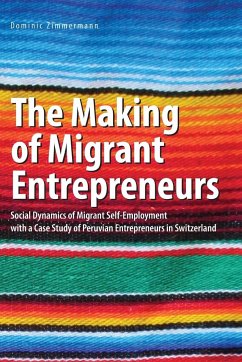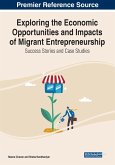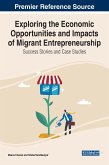Given the diversification of global migration patterns, the increased importance attributed to knowledge and innovation for economic development, and the rise of social policy regimes that emphasise self-responsibility, migrant entrepreneurship has become a widely discussed form of migrant incorporation in both policy and social sciences. Particularly in North America and Europe, policy advisors have drafted special programmes and regulations aimed at self-employed migrants, while social scientists have also come up with a vast body of research, although it has not been exempt from certain controversies and biases. Migrant entrepreneurship has frequently been associated either with rags-to-riches success stories or with unremunerative hard work and marginalised social positions. Also, a great deal of research has strongly and consistently focused on entrepreneurial cultures and ethnic bonds related to ethnic entrepreneurship, and consequently other forms of migrant self-employment have been given only given scant attention. Yet, more recently, other aspects, including institutional embeddedness and gender, have become important focal points of research studies and have opened up new, promising avenues to explore the phenomenon. This book offers a comprehensive up-to-date overview of the research area covering migrant entrepreneurship and self-employment, in addition to investigating the skills of migrant entrepreneurs departing from the question: which migrants become self-employed, the highly skilled ones (due to their excellence) or the ones with a low skill endowment (because they cannot find a satisfying employment in the labour market)? Moreover, the included case study on highly skilled Peruvian migrant micro-entrepreneurs in Switzerland demonstrates the complex interplay of elements at work before and during the business foundation, such as an unsatisfying socio-economic integration, the search for social recognition and agency, the reconfiguration of gender roles, and the availability of resources to exploit transnational business opportunities.
Hinweis: Dieser Artikel kann nur an eine deutsche Lieferadresse ausgeliefert werden.
Hinweis: Dieser Artikel kann nur an eine deutsche Lieferadresse ausgeliefert werden.








